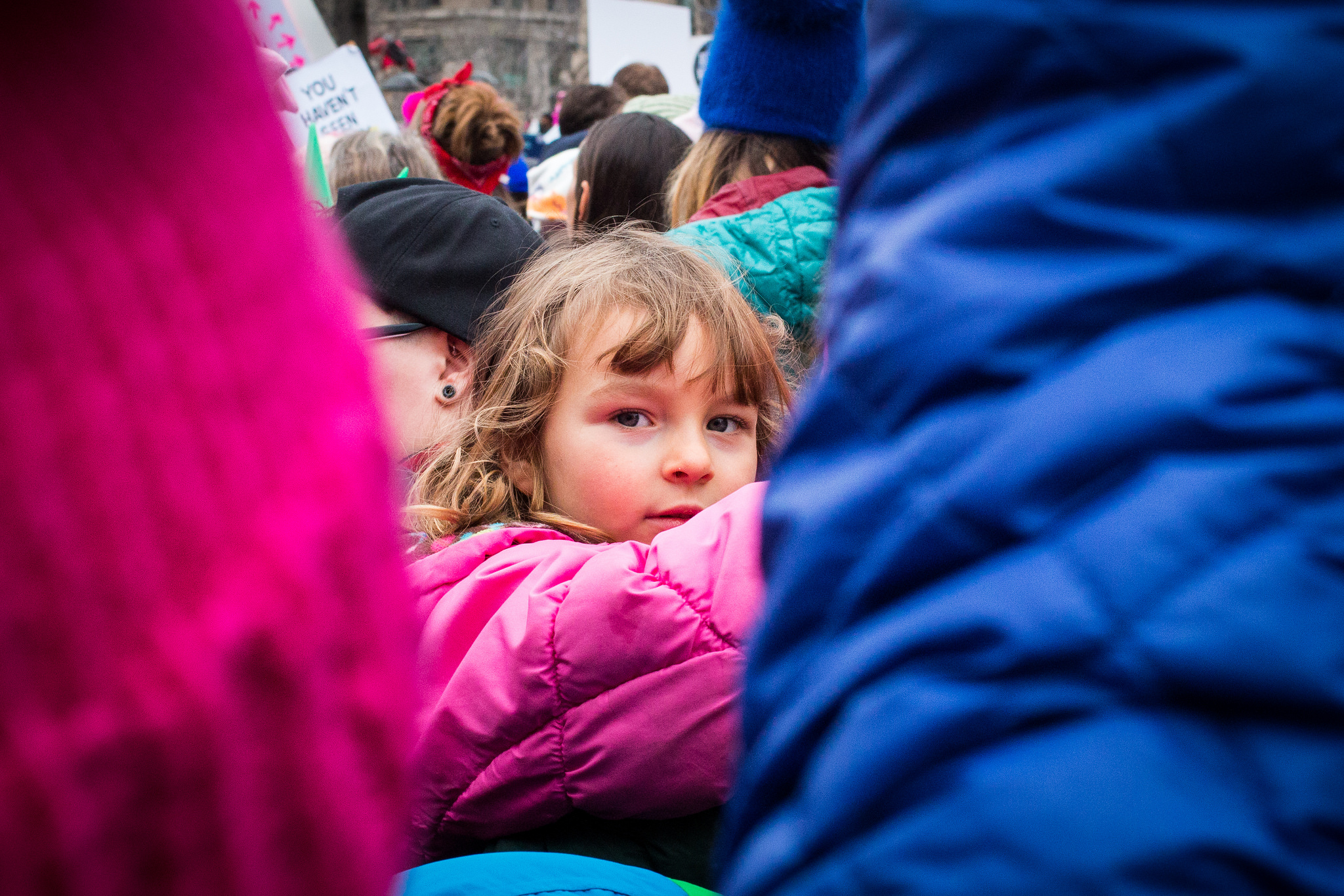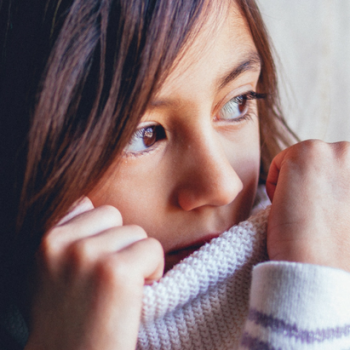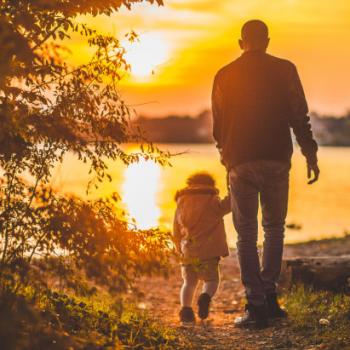
Like Cindy Brandt, I fell in love with “Woke Baby” from the Women’s March. Also like Cindy, I nonetheless wondered, “Should children be involved in the work of activism such as public protesting?” Cindy says yes, and in a recent post gave three reasons why she believes this is the case. (Cindy also has a great post about protest as mission.)
While I found Cindy’s posts to be helpful and provocative, I also felt a bit triggered. This had nothing to do with Cindy’s arguments; Cindy made important points. Rather, my feeling triggered had to do with my upbringing in the conservative Christian world. Growing up, I felt like myself and my peers were often put on display by our parents in order to further our parents’ battle lines in the culture wars. Now that my peers and I are adults, many of us do not feel those experiences empowered us. Rather, we feel used. So seeing “Woke Baby” stirred up all sorts of feelings, some of them heartwarming but some of them were, to be honest, uncomfortable.
So I want to ask a question in this post: How do we balance respecting the autonomy of children with the inevitable inculcation of children with familial and communal values? Especially when it comes to something as important as social justice activism? It is easy, for example, for unfundamentalist parents to get behind encouraging children to carry Black Lives Matter signs, but are not fundamentalist parents who encourage children to carry Unborn Lives Matters signs motivated by the same basic desires?—desires to encourage their children to fight for “good” causes, where “good” is defined according to culture war lines?
In my mind, children should not be reduced to weapons wielded by adults for adults’ own wars. They should be respected as their own beings—fully human and made in the image of God. So how do we go about both respecting children and teaching them about social justice without reducing them to props for adult battles?
I think that ultimately it comes down to this question: are you using your children for your own goals or are you empowering your children to find their goals?
Here are a few questions you can ask yourself before giving your child a sign and taking them to a rally or march:
1. Is it your child’s idea?
2. Did your child get that idea organically?
3. What are the potential costs to your child?
4. Are you prepared to help your child process and decompress after the event?
5. What are you getting out of your child’s involvement? Be honest. Take a moment to examine your motives. Why do you want your child involved? What are your desires? What are the needs that your child’s involvement will fulfill? As you examine your own motives, be nonjudgemental. Just try to find out the answers so you can be more transparent with yourself and your child.
6. If your child has a 180 degree turn in beliefs in college, how will they think about this experience? Will they laugh at themselves for their youthful passion, or will they feel like you made them do something they did not want to do?
7. How can you make the event an educational one for your child, so that your child feels empowered by the event to later take on their own causes?
8. Are you prepared for your child to take on their own causes later in life, even if you disagree?
What do you think? How do you balance the tension between encouraging your kids to participate in social justice and letting your kids be their own people?
Join us at our Facebook Group, Raising Children Unfundamentalist.












